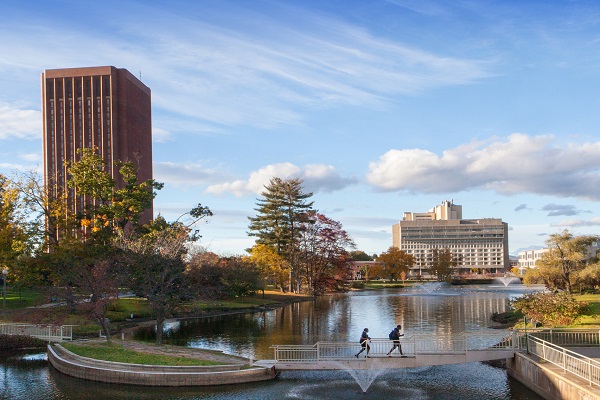University of Massachusetts Amherst: Encore Boston Harbor Met its Employment Goals, Employee Survey by UMass Donahue Institute Finds
Encore Boston Harbor has met gaming legislation goals to provide opportunities to Massachusetts and local residents, the unemployed and marginally employed, including minorities, women and veterans, according to employee survey results released today by the UMass Donahue Institute.
Survey data was collected from new employees at Encore Boston Harbor from January 2019 to December 2021. The findings draw from a large sample of employees who elected to participate in the survey, capturing hires from pre-opening through 2 ½ years of operations after the resort-casino opened its doors in June, 2019. Employees were surveyed about their demographics, previous employment, residency, experience and other economic measures. The study, part of the University of Massachusetts Amherst-based Social and Economic Impacts of Gambling in Massachusetts (SEIGMA) project, was conducted before and throughout the COVID-19 pandemic.
“The Encore Boston Harbor employee survey helps us understand whether casino employment can lead towards economic stability and prosperity for workers,” says Mark Melnik, director of the institute’s Economic & Public Policy Research (EPPR) group. “We’re especially interested in the impacts among the most marginalized sectors of the population.”
Stable and flexible work opportunities
79% of new hires surveyed obtained one full-time job—up from approximately 70% of workers who held one full-time job in their most recent work arrangement.
86% of those who were previously unemployed found full-time positions at Encore Boston Harbor. Among former part-time workers, 67% (including those holding multiple jobs totaling less than full-time) found full-time jobs at the resort-casino.
Increased pay and improved benefits
41% of respondents expect to earn more income than they did at their previous job, and another 29% expect to earn roughly the same.
Of the 30% who expect to earn less salary and wage income, half expect to earn tips as well. The proportion of tip earners in this category is higher than among those who will be earning higher pay, suggesting that the chance to earn tips at the casino may counterbalance the prospect of lower base salary pay.
Encore Boston Harbor provided some type of benefits package to 91% of new workers, such as healthcare benefits, retirement benefits and paid time off.
A large number of surveyed workers gained improved access to at least one type of benefit with their new casino job—23% gained paid time off, 26% gained health care benefits and 29% gained retirement benefits over their previous jobs.
Career potential and training opportunities
When asked about the reason they chose to work at a casino, the primary answer—for 65% of respondents—was for the opportunity of career advancement.
Employment for long-term and local residents
Long-term residents of Massachusetts account for 79% of the surveyed workforce. The others (21%) moved to the state less than one year before hire.
Some 80% of surveyed new employees report residencies within 30 miles of the casino.
Improved opportunities for historically disadvantaged groups
White workers account for the largest share of surveyed workers (35%) while Asian workers make up the next-largest share (20%), followed by Hispanic or Latino workers (23%) and then Black workers (18%).
Women make up under half (43%) of the surveyed workforce at the resort-casino.
A large proportion of surveyed workers (43%) were born outside of the U.S.
Four percent of surveyed workers reported a veteran status, just under the share of veterans statewide, which is 5% of residents aged 18 years and over.
“The new employee survey gives us insight into casino employees’ experience on the ground: why they’re seeking employment in this new field, what types of walks of life employees come from, their aspirations and how casino employment fits into their career goals and their interest in training and career advancement. We were also especially interested to learn that a large section of employees are foreign-born,” says Kameira Breest, EPPR research analyst.
“A critical goal of legalizing casino gaming in Massachusetts was to provide good paying jobs for our residents, both during construction and once the facilities were operational,” says Cathy Judd-Stein, chair of the Massachusetts Gaming Commission. “The new employee survey is an important tool for the Commission to understand how Encore Boston Harbor is contributing to those goals. I thank the research team, the survey participants and EBH for their participation and continued work to provide meaningful, productive employment opportunities to the people of the commonwealth.”
Upcoming SEIGMA reports include a study of economic impacts generated by the operation of Encore Boston Harbor and a survey-based study and report about the resort-casino’s patrons.

